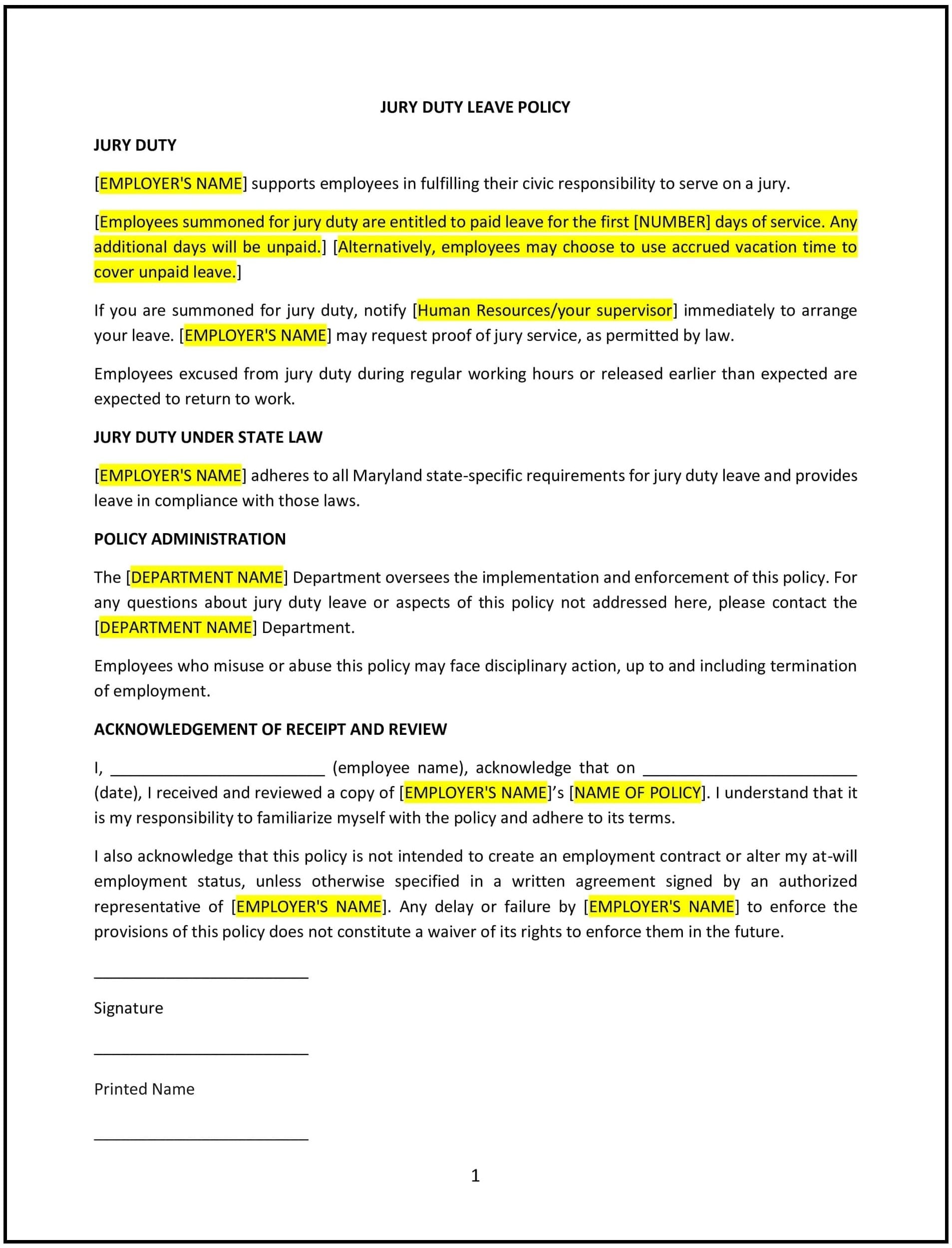Got contracts to review? While you're here for policies, let Cobrief make contract review effortless—start your free review now.

Customize this template for free
Jury duty leave policy (Maryland)
This jury duty leave policy is designed to help Maryland businesses provide employees with time off to fulfill their civic duty as jurors. It outlines the process for requesting leave, managing scheduling, and ensuring fair treatment during this period.
By adopting this policy, Maryland businesses can support employees’ civic responsibilities while maintaining operational efficiency.
How to use this jury duty leave policy (Maryland)
- Define eligibility: Specify which employees are eligible for jury duty leave, such as full-time, part-time, and temporary workers.
- Outline notification requirements: Require employees to notify their manager or HR promptly after receiving a jury summons and provide documentation.
- Address pay during leave: Clearly state whether jury duty leave is paid or unpaid and any conditions for compensation.
- Manage scheduling: Provide guidelines for rescheduling work shifts around jury duty to minimize disruption.
- Protect employee rights: Emphasize that employees will not face adverse consequences, such as termination or retaliation, for serving on a jury.
- Include return-to-work procedures: Detail how employees should notify the business when their jury duty concludes and confirm their return date.
- Reflect Maryland-specific considerations: Include state-specific laws, such as Maryland’s prohibition against penalizing employees for attending jury duty.
Benefits of using this jury duty leave policy (Maryland)
Implementing this policy provides Maryland businesses with several advantages:
- Supports civic duty: Encourages employees to participate in an essential legal process without workplace conflicts.
- Promotes fairness: Protects employees from adverse treatment related to jury service.
- Reduces disruptions: Establishes clear processes to manage employee absences during jury duty.
- Builds trust: Demonstrates a commitment to employees’ legal rights and responsibilities.
- Aligns with Maryland laws: Reflects state-specific requirements for jury duty leave.
Tips for using this jury duty leave policy (Maryland)
- Communicate expectations: Ensure employees understand their rights and responsibilities under the policy.
- Maintain documentation: Keep records of jury summonses and leave requests for tracking purposes.
- Support scheduling flexibility: Adjust workloads or reassign tasks to accommodate employee absences.
- Train managers: Educate supervisors on Maryland laws and the importance of supporting employees during jury duty.
- Review regularly: Update the policy to reflect changes in Maryland laws or workplace practices.